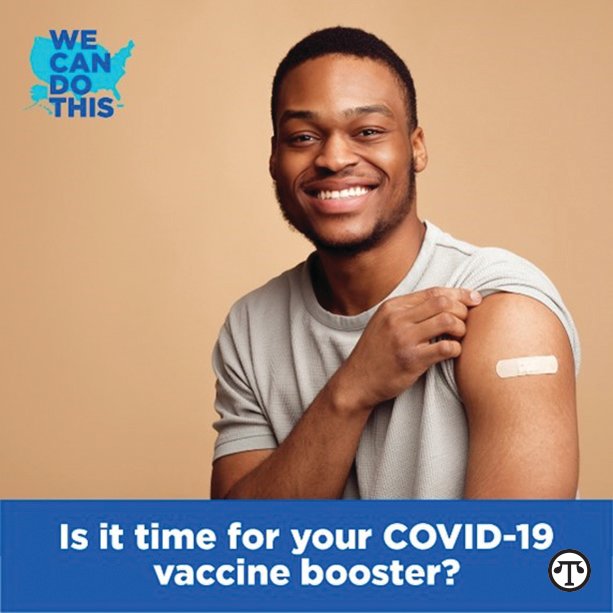 Post Classifieds
Post Classifieds
Fact Or Fiction: COVID-19 Vaccine And Booster Myths Debunked

by the We Can Do This
COVID-19 Public Education Campaign
(NAPSI)—Two years into the COVID-19 pandemic, myths and misperceptions about COVID and vaccines continue to arise and evolve on social media, online and in daily conversation. Getting facts from a reliable source can keep myths from complicating decisions about getting vaccinated and boosted or following other prevention measures.
“Misinformation tends to spread rapidly, and it can be difficult for people to sort fact from fiction,” said Dr. Shaefer Spires, Assistant Professor of Medicine and Medical Director of Duke Antimicrobial Stewardship Outreach Network at Duke University School of Medicine. “But at this point in the fight against COVID, there is no doubt that keeping up on vaccinations gives people the strongest defense against serious illness.”
Here are the facts behind COVID vaccine and booster myths:
Myth: The need for booster shots is a sign that the vaccines aren’t working.
Fact: Science shows that COVID vaccines are working well to prevent severe illness, hospitalization, and premature death. However, studies show that protection against mild and moderate disease can decrease gradually over time, and boosters can make your protection last longer. They can also help protect you against new variants.
Myth: Vaccinated and boosted people no longer need to wear masks or social distance.
Fact: Even though vaccines reduce the risk of spreading and getting COVID, the virus can still be passed through the air as people breathe and talk, especially in crowded and poorly ventilated spaces. To help prevent the spread of COVID and reduce risk of infection, everyone ages 2 years and older should wear the best-fitting mask available to them while in public indoor areas regardless of their vaccination status. In general, people do not need to wear masks when outdoors.
Myth: Since there are more ways to treat COVID, getting vaccinated is no longer necessary.
Fact: Many advances have been made in the fight against COVID, but treatments have limitations and it is always better to prevent disease in the first place. Some treatments, including antivirals like “the COVID pill,” must be taken within days of getting COVID and are only for people at highest risk. Other treatments are taken by injection or intravenously in multiple sessions in a healthcare facility. Treatments are in limited supply and do not keep you from getting COVID. They can also be expensive. Getting vaccinated teaches the body to recognize and fight the virus. No-cost vaccines and boosters offer the best form of protection against severe illness, hospitalization, and premature death.
Myth: Natural immunity from getting sick with COVID is better than the immunity you get from vaccination.
Fact: The risks of getting seriously ill from COVID, or of developing long COVID after infection, far outweigh any potential side effects of COVID vaccines. Getting vaccinated gives most people a high level of protection against severe illness. Current data shows that unvaccinated adults 18 and older are five times more likely to get COVID than vaccinated adults and 16 times more likely to be hospitalized from it than vaccinated adults. Vaccination also protects the people around you since you can spread COVID to others when you are ill. Vaccination even provides more robust protection for people who have already had COVID to reduce the risk of getting infected again.
Myths and misperceptions about COVID, vaccines, and boosters are everywhere, and misinformation can interfere with making informed decisions about getting vaccinated or following other prevention measures—putting people at risk for severe illness, hospitalization, and premature death.
Learn More
For accurate, science-based information about vaccines and boosters, visit www.vaccines.gov.
On the Net:North American Precis Syndicate, Inc.(NAPSI)
Get Top Stories Delivered Weekly
Discuss This Article
MOST POPULAR THE CONCORDIAN

"Bohemian Rhapsody" Will Rock You By Laura Buchanan

"Fallout 76": A Small State in a Big Game By Caleb Zopp

"Girl in the Spider's Web": A Must-See for Men and Women By Savannah Cooper

"The Grinch": More Science Than Art By Shannon C. White
GET TOP STORIES DELIVERED WEEKLY
FOLLOW OUR NEWSPAPER
LATEST THE CONCORDIAN NEWS
- Campus Carry Bill Receives Opposition from College Leaders
- "Bohemian Rhapsody" Will Rock You
- "Fallout 76": A Small State in a Big Game
- "Girl in the Spider's Web": A Must-See for Men and Women
- "The Grinch": More Science Than Art
- Hand, Foot, and Mouth Disease Spreads on College Campuses
- Concord Senior Oral Frazier Signs Book Deal
RECENT THE CONCORDIAN CLASSIFIEDS
OUTSIDE THE LINES
- Effortless Holiday Hosting: Simple Tips to Keep Your...
- There’s More To Vision Health Than Meets the Eye
- Medications and Wellness Essentials Delivered to Your...
- Understanding Spam—And How To Stop It
- 1 in 5 Vehicles on the Road Has an Open Recall—Yours C...
- A Difficult Diagnosis Sparks Hope and Support for...
- Fall For Improved Vehicle Protection
- Six Ways To Save Money This Holiday Season
- BigFuture Resources Help Students Discover College,...
- Anheuser-Busch Celebrates American Growers on National...
FROM AROUND THE WEB
- BookTrib's Bites: Four Enthralling Autumn Reads
- Trump's Flawed Tariff Proposal
- How Artificial Intelligence Intersects with Energy
- 6 Reasons Fiberglass is the Pool Material of Choice for...
- BookTrib’s Bites: Four Unforgettable Reads
- Navigating “Gramnesia” This Holiday Season
- BookTrib’s Bites: Dive Into These Four Exciting Fall Reads
- Easy Monster Margarita is No Trick, All Treat
- Help Marine Toys for Tots Deliver Hope to Children in...
- 5 Tips to Pick the Right Dental Plan



